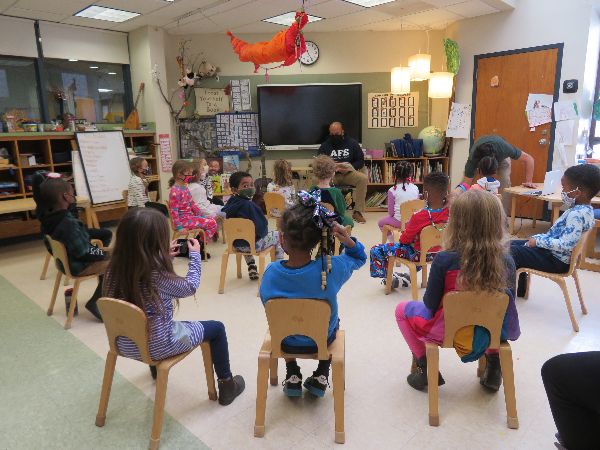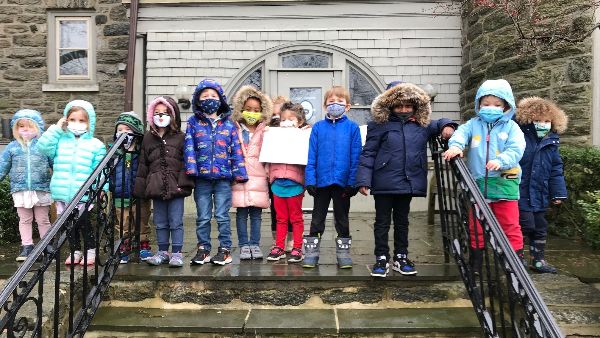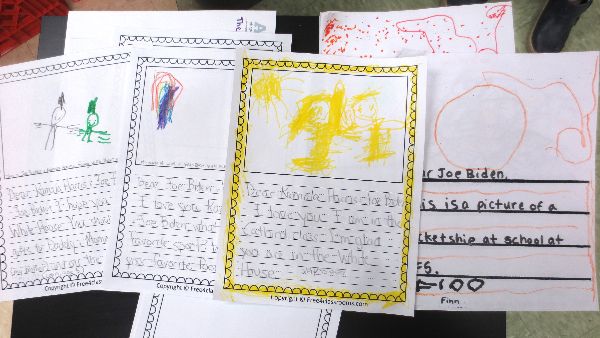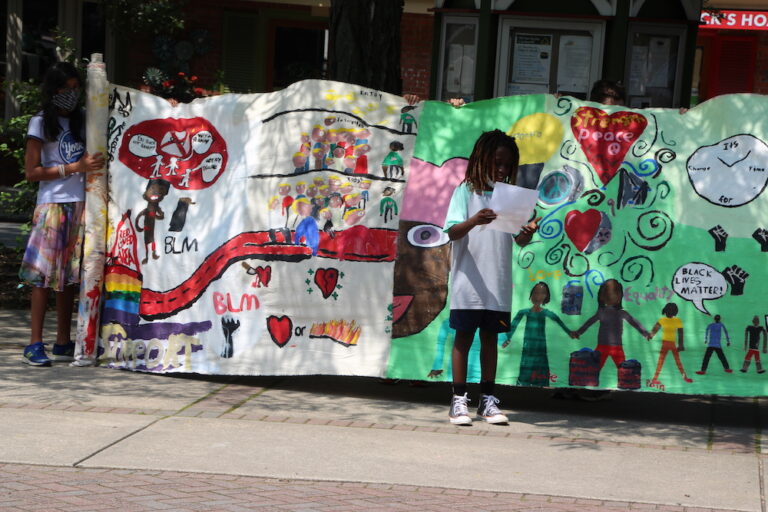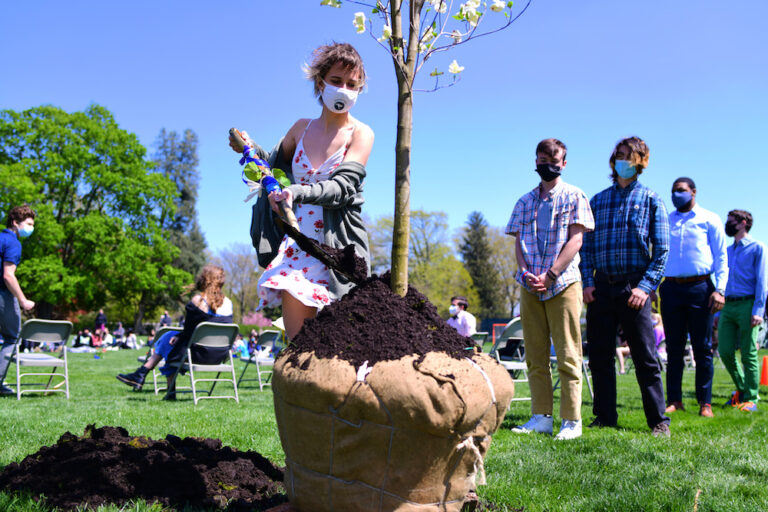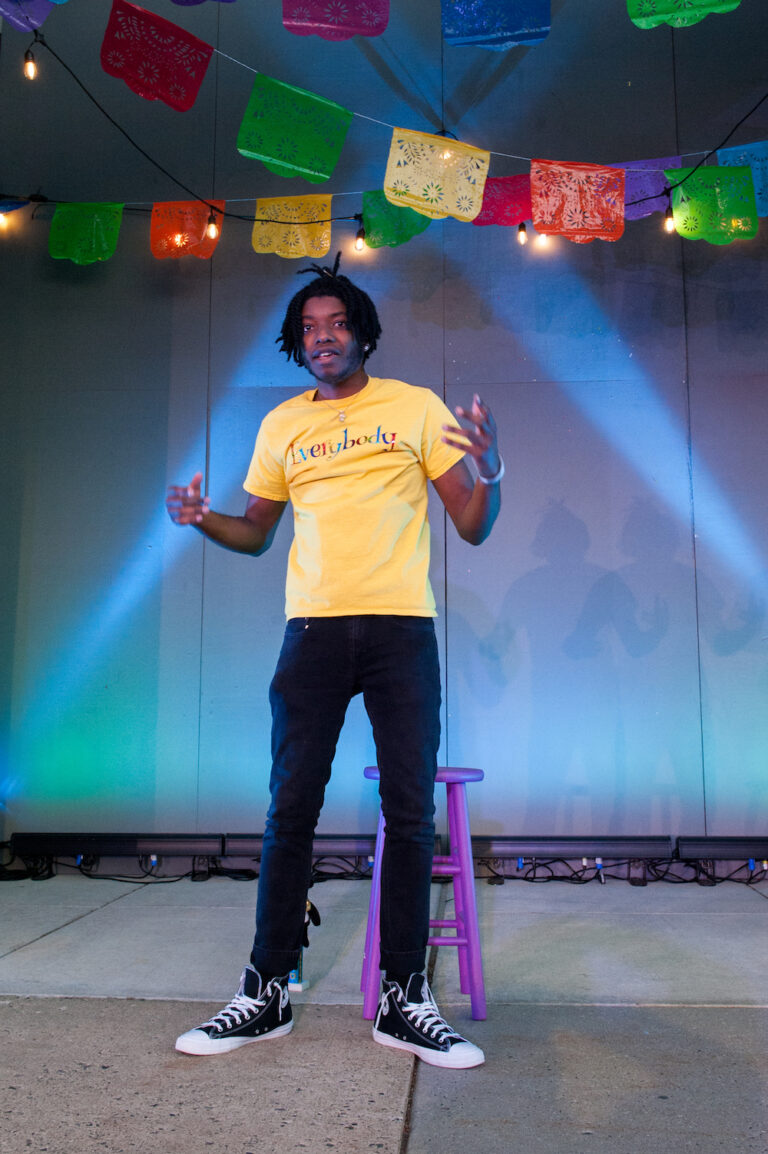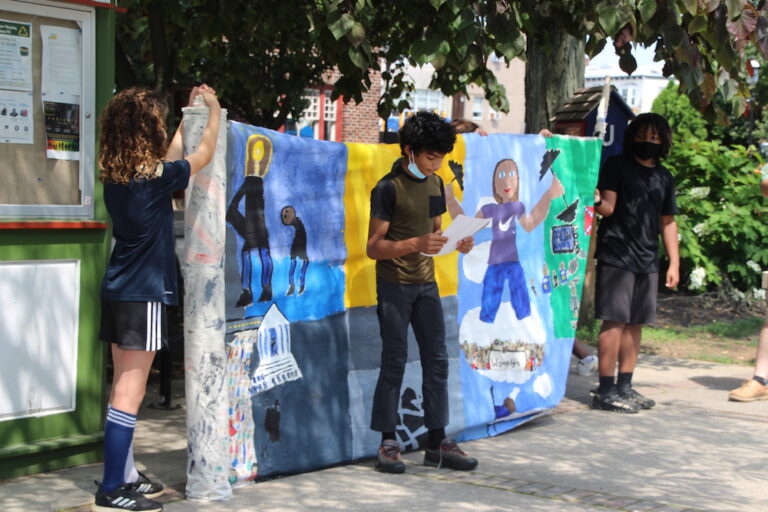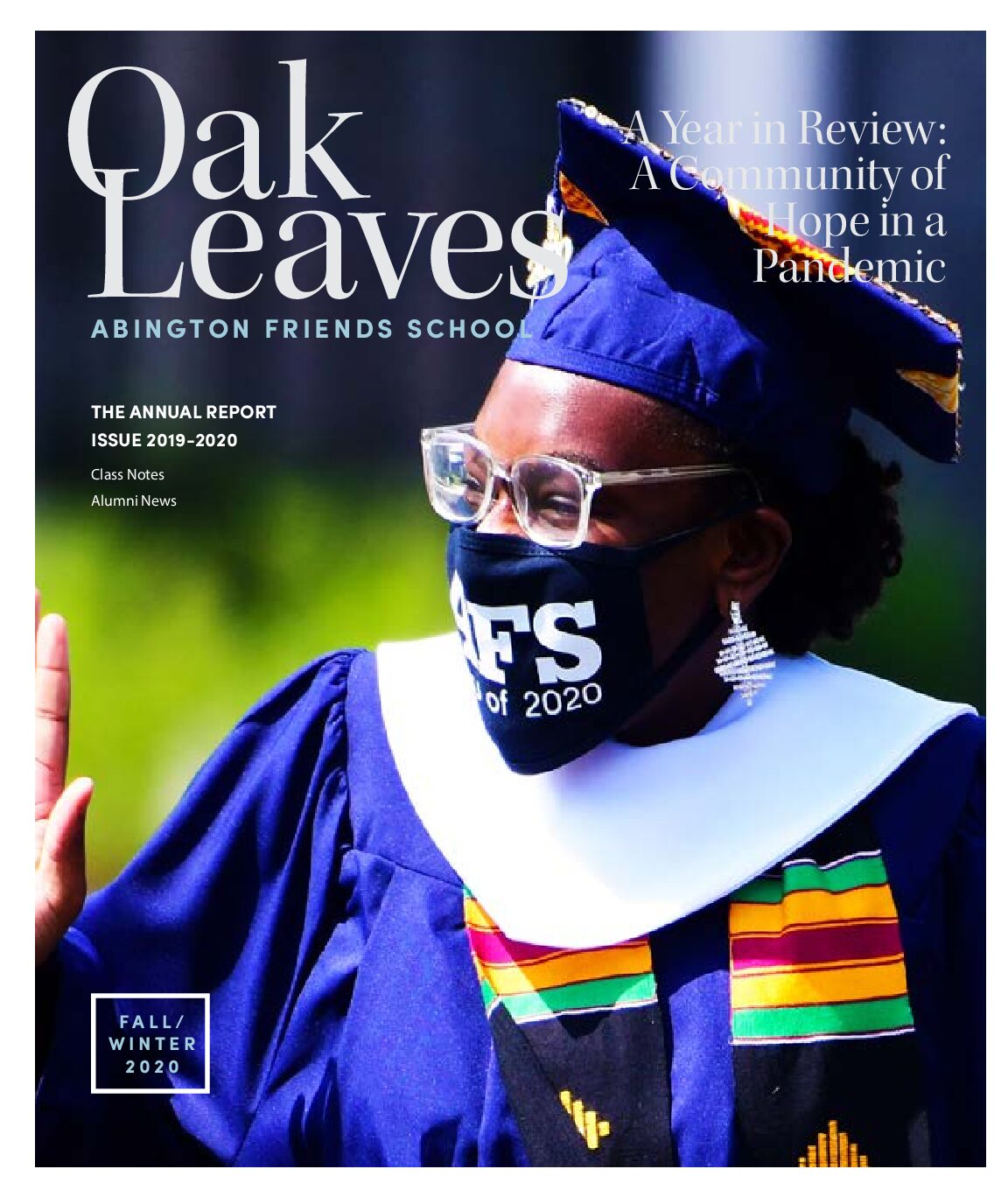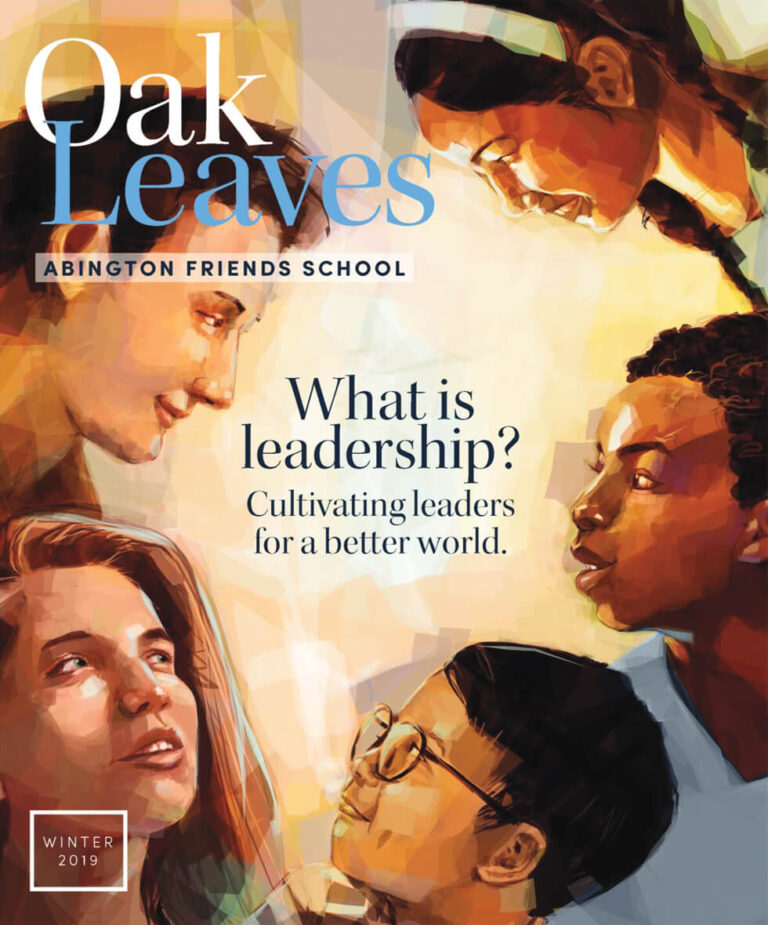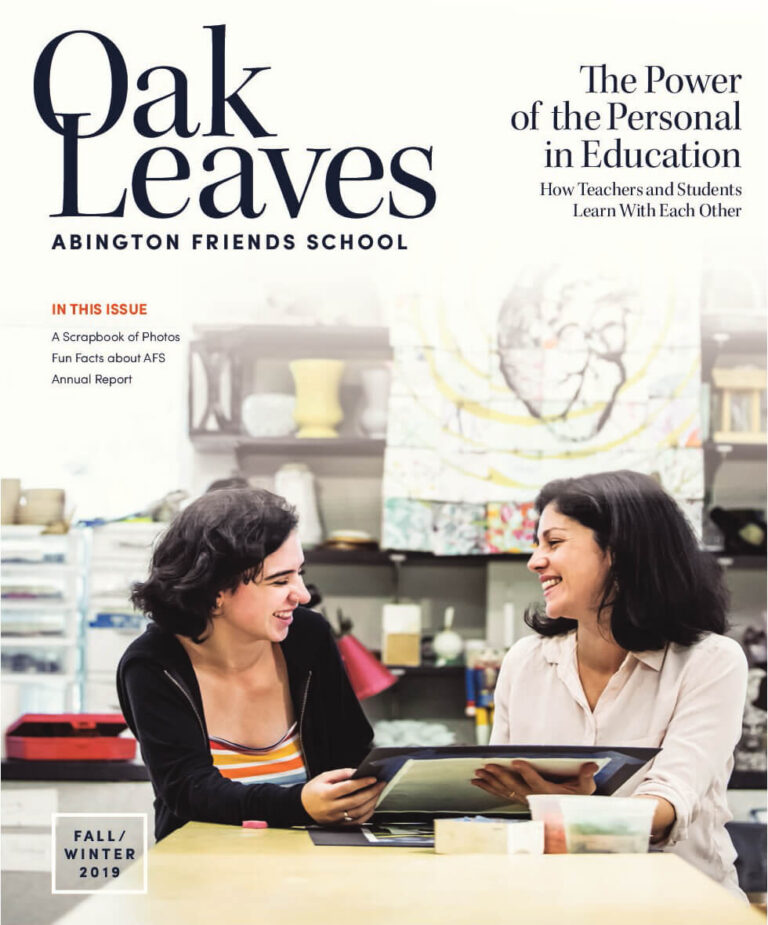Scrapbook
Social Justice is at the Core of AFS Education
This past year, as racial disparities and social unrest plagued our nation, the students at AFS were encouraged to do their part in dismantling racism and oppression. This starts with education, and at AFS, they approach it at every level, starting in kindergarten.
“As an institution that is committed to equity, justice, and engagement, we cannot be silent,” says Mikael Yisrael, Director of Equity, Justice, and Engagement. “We must continue to shine a light on and unequivocally denounce racism, oppression, bigotry, and hate of any kind. We must continue to build bridges of understanding and support across divisions while disrupting and dismantling systemic white supremacy. Indeed, this work is our shared responsibility, we all have a role to play.”
Speaking of plays, this year the Upper School Theatre program put on a production of “Everybody”, an inventive adaptation of a 15th century morality play that addresses issues of race, white fragility, social media, friendship, family obligations, materialism, and mortality.
Alicia Fernández’s kindergarten class also explored various forms of artistic expression, including puppetry and scriptwriting. The class discussed the power of words and delved into social justice issues like racism, prejudice, and gender stereotypes.
Carol Wolf’s Early Childhood Catbirds watched the presidential inauguration and then wrote letters and drew artwork to send to Washington, D.C. Middle schoolers also penned letters that described their hopes, dreams, and expectations for the next four years. In his letter, Nelson Cordón ’25 wrote, “One issue that is really important to me is immigration, [which is] a hard problem to fix because there are so many different steps. First, we have to let people exercise their human right of migration. Second, we have to create more jobs, so that American citizens, new citizens, and the undocumented do not end up homeless.”
Juliana Morrissey, Middle School Humanities teacher, wants to provide all students with a framework to better understand who they are and how they engage with the world around them.
“It’s pivotal that we create spaces to make every student feel seen, heard, and respected,” says Morrissey. “By guiding students to have these conversations about their own identity and how that impacts them and the world around them, we can help to build a stronger sense of community.”
Fourth-graders engaged in a year-long social justice curriculum that was developed by Lower School teachers Keisha Hirlinger and Michelle Podulka. Given the ongoing wave of political and social unrest and the activism that followed, students eagerly delved into discussions centered around social justice topics that resonated with them.
“Speaking about groups that have been traditionally marginalized from a place of power was really important to us,” says Hirlinger.
Adds Podulka, “We wanted to make sure that [our class knew] black people did not show up in the world as enslaved people because that’s so important for them and for us all.”
The class proved to be an eye-opening experience for students, many of whom had no clue that black people had served as kings who reigned over kingdoms and armies. Hirlinger and Podulka plan to finalize and formalize an overarching social justice curriculum for all ages of lower school children.
Middle School students grew in their knowledge about social justice by participating in classroom discussions and affinity groups. They went to Jenkintown Square for a Black Lives Matter protest and poetry reading. The students created moving murals with a social justice theme during art classes, and their art served as a backdrop for the protest and poetry reading.
Eighth-grade students Yael Smith Posner ’25 and Ivy S. ’25 started a project for Women’s History Month that included holding an assembly that directly addressed women.
“Women’s issues are viewed as an afterthought,” says Tamara Cohen, who is on the board of the Women’s March organization. “Women deserve to be represented—and more importantly—respected for their accomplishments as not women’s history, but as history. We know that history is who tells the story and if half the population doesn’t get to tell the story, that’s a problem. It’s also important that we get to see women on the walls of our school to show young girls and women that we can make history, too.”
This spring AFS welcomed Holocaust survivor Elly Gotz, who shared his story and participated in a Q&A following his talk.
“It is imperative for us to put our values in action and strengthen our capacity as agents of change with intention and purpose on the path toward creating a more equitable and just society,” says Yisrael.
AFS’ faculty and staff completed a program called “Look Deeper: Race,” a digital experience built around the groundbreaking documentary “I’m Not Racist… Am I?”
“Faculty and staff engaged in dialogue to gain a deeper understanding of race, racism, and the work we all must do as educators and stewards of the Abington Friends School community,” says Yisrael. “We have developed personal, professional, and institutional action plans in the spirit of transparency, clarity, and accountability. We are acutely aware that, as individuals and as an institution, the difference between who we are and who we want to be is what we do.”
This year’s commencement speaker Michael J. Harding ’14 told students, “Remember that you are young scholar activists who have found and leveraged your voices for good. You have been willing to lean into discomfort in order to catalyze meaningful change in your communities around environmental justice and racial equity.”
Rich Nourie, Head of School at AFS, maintains that we are all called to play a part in dismantling racism and oppression. An AFS education aspires to help children understand the world that they live in so that they can find their place in doing the good work of justice and peacemaking.
“I see this in the curriculum, the books we read, the plays we perform, the art on the walls,” says Nourie. “I am inspired over and over again by the strength of voice and moral clarity I see in students who aspire to be partners with us as adults in re-envisioning and repairing the world that they and their children will inhabit.”
See more Scrapbook